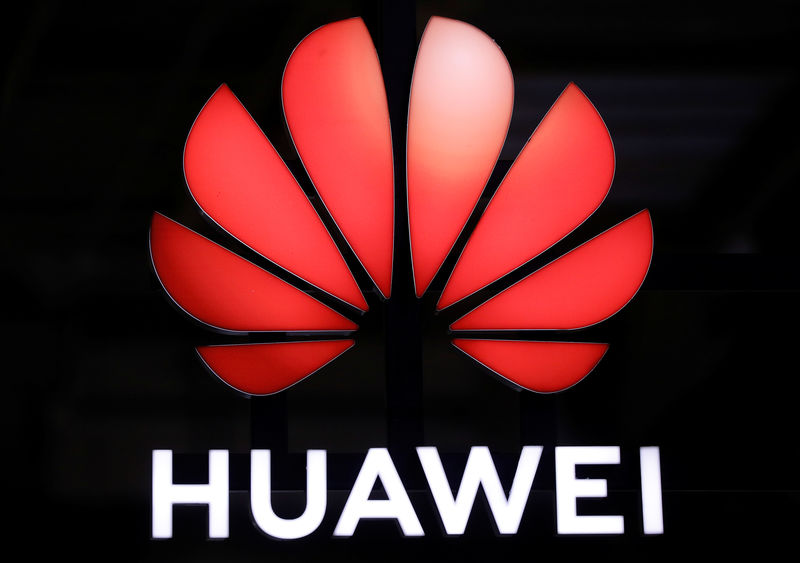By Alexandra Alper and Karen Freifeld
WASHINGTON (Reuters) - The U.S. government will issue licenses to companies seeking to sell goods to China's Huawei where there is no threat to national security, Commerce Secretary Wilbur Ross said on Tuesday, leaving industry observers unsure about which products will pass muster.
Seeking to revive trade talks with China, President Donald Trump announced last month that American companies would be allowed to sell products to Huawei Technologies Co Ltd, the world's largest telecommunications equipment maker.
Trump's comments came after the United States placed Huawei on the Commerce Department's so-called Entity List in May over national security concerns. U.S. parts and components generally cannot be sold to those on the list without special licenses.
While American chipmakers welcomed Trump's announcement, many industry and government officials were confused about the new policy.
Speaking at a conference in Washington, Ross affirmed that Huawei would remain on the Entity List, meaning winning licenses would require overcoming a presumption of denial, and said the scope of items requiring licenses would not change. However, he opened the door to some approvals.
"To implement the president's G20 summit directive two weeks ago, Commerce will issue licenses where there is no threat to U.S. national security," Ross said, referring to Trump's announcement at the meeting of world leaders in Japan.
"Within those confines, we will try to make sure that we don't just transfer revenue from the U.S. to foreign firms," he said.
After Huawei was added to the Entity List, the semiconductor industry lobbied the U.S. government to be allowed to sell nonsensitive items that Huawei could easily buy abroad, arguing that a blanket ban would harm American companies.
Industry observers said Ross' comments lacked the clarity and relief many hoped for after Trump's announcement.
"The actual policy, of what is not going to endanger U.S. security, is not clear," Washington trade lawyer Doug Jacobson said. "The only way that industry can determine the line is by submitting (license) applications and knowing what types will be approved and which types will be denied."
Separately, White House economic adviser Larry Kudlow told an event hosted by CNBC that relaxed U.S. government restrictions on Huawei could help the technology giant but would only be in place for a limited time.
He said U.S. government purchases of Huawei parts, components or systems would remain off-limits, as would any transactions involving 5G, but the licensing requirements had been relaxed for so-called general merchandise that involved "no national security influences or consequences."
That meant some chip companies would be permitted to sell to Huawei, on a limited basis, items generally available on the global market, including from vendors in South Korea, Taiwan and Vietnam, he said.
"We are opening that up for a limited time period," Kudlow said. "So that's important and, I guess, does provide some relief to Huawei." He did not specify how long the relaxed licensing guidelines would be in effect.
Speaking at the same conference as Ross, Nazak Nikakhtar, Commerce's assistant secretary for industry and analysis and nominee to lead the department's Bureau of Industry and Security, said the agency hoped to have decisions soon on export license requests from companies seeking to sell to Huawei.
The United States has accused Huawei of stealing American intellectual property and violating Iran sanctions.
It also has launched a lobbying effort to persuade U.S. allies to keep Huawei out of next-generation 5G telecommunications infrastructure, citing concerns the company could spy on customers. Huawei has denied the allegations.
TENACIOUS PURSUIT OF AMERICAN TECHNOLOGY
Shortly after Huawei was added to the Entity List, the Commerce Department issued a temporary general license allowing the company to buy equipment to maintain existing networks and provide software updates to existing Huawei handsets. That license expires on Aug. 19, but may be extended.
Any further relief granted on Huawei's entity listing still may not spell the end of troubles for the company. In May, Trump signed an executive order barring U.S. firms from using telecommunications equipment made by companies posing a national security risk.
The move, which required the Commerce Department to draw up an enforcement plan, was seen as paving the way to ban U.S. companies from buying from Huawei, at a time when U.S. wireless carriers are looking for partners as they roll out 5G networks.
On Tuesday, Ross said Commerce would issue an "interim final rule" in mid-October to implement the executive order. Interim final rules go into effect immediately, even as they seek public comment that could be used to modify regulations going forward.
The United States has engaged Beijing in a tit-for-tat trade war over accusations that China steals American intellectual property (IP) and forces U.S. companies to transfer their technology to Chinese firms to gain access to markets.
The United States last year passed a law that required Commerce to draft new rules to beef up oversight of certain foundational technology sales abroad. Commerce will "very soon" seek formal comment on that rulemaking, Nikakhtar said.
